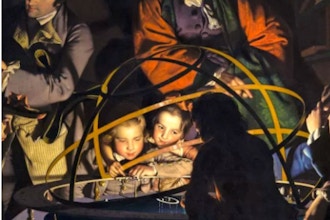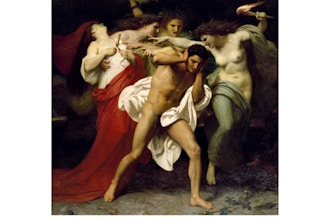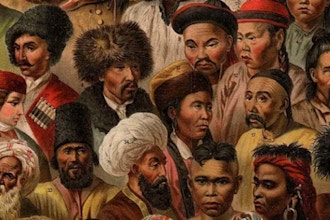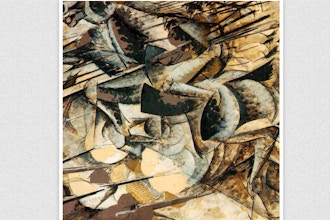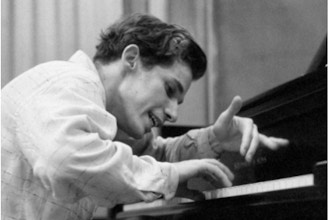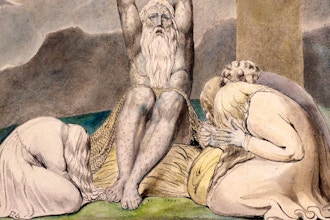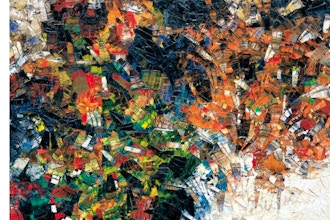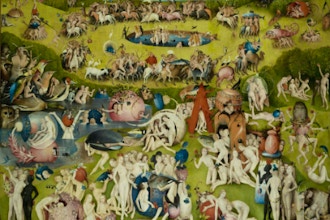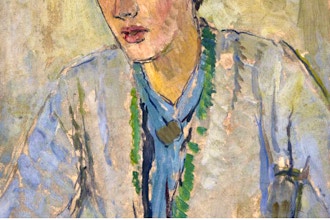Brooklyn Institute for Social Research
Upcoming Classes in NYC
The Brooklyn Institute for Social Research, established in 2011, offers liberal arts education and research opportunities to local communities while supporting young scholars. With a mission to engage various intellectual traditions, the institute aims to provide accessible education and foster active, engaged citizens.
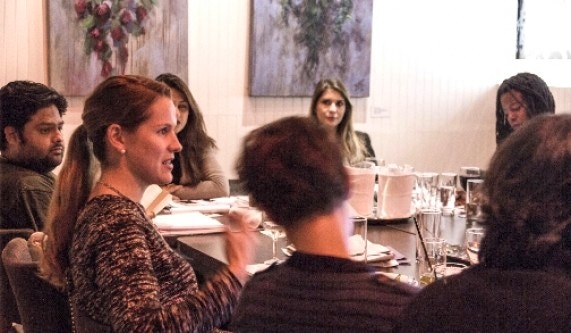
3 classes have spots left
Foundations of Modern Philosophy
Brooklyn Institute for Social Research @ 247 West 37th St, New York, NY
Long before the development of modern academic and scientific disciplines, the early modern scientific revolution was exemplified by “natural philosophers”—polymaths like Rene Descartes, Isaac Newton, Francis Bacon, and Thomas Hobbes who saw no clear distinction between philosophical, scientific, social, and other forms of inquiry. The scientific revolution, born partly from the insights they provided, was also a philosophical revolution,...
What is Liberalism?
Brooklyn Institute for Social Research @ 247 West 37th St, New York, NY
While for many in the United States liberalism is understood as a loose category of political identification – whose definition has shifted significantly and not always transparently over the past century – fewer people are familiar with liberal political philosophy despite its overwhelming influence on political discourse both left and right. Our public language and discussions are often littered with the ideas, ideals, phrases, and thoughts...
Kant: Metaphysics and Morality
Brooklyn Institute for Social Research @ 30 Irving Pl, New York, NY
Kant’s “Critical philosophy,” which begins with the appearance of the Critique of Pure Reason in 1781, is an attempt to understand the total scope and limits of human reason, science, and morality. Moreover, he argues that the purpose of philosophy is to answer the fundamental questions that emerge from such an attempt: “What can we know? What should we do? What can we hope for?” In other words: Can we really know what reality...

CourseHorse Gift Card
Thousands of classes & experiences. No expiration. Gift an experience this holiday season and make it a memorable one. Lock in a price with the Inflation Buster Gift Card Price Adjuster™
The Bible as Literature: Narrative, Politics, & History
Brooklyn Institute for Social Research @ 612 W 116th St, New York, NY
The Bible is a wonderfully comprehensive collection of stories: a parade of heroes and villains, royals and peasants, dysfunctional families and the truest of filial loyalties. Its texts span genres from poetry to novella, short story to historical epic, legalistic writing to satire, and instructional manual to the confessional. However, this simple fact of the Bible’s literary quality and variety often gets lost in discussions of authorship...
Aristotle and the Poets: Truth, Fiction and Tragedy
Brooklyn Institute for Social Research @ 247 West 37th St, New York, NY
Aristotle’s Poetics offers an account of imitative art and its pleasures that stands at the origins of Western aesthetic theory. In response to Plato’s critique of poetry as twice-removed from reality, Aristotle defends—and theorizes—imitation as an essential component of human education and of the “discovery of form in things.” Fiction is false in its particulars, but somehow true in its universality. What does drama teach us that history...
Alternative Economies: Ecology and Economics
Brooklyn Institute for Social Research @ 275 Madison Ave, New York, NY
Students of economics are often puzzled to learn that markets are normally treated as self-standing, self-contained systems. But as people experience the increasing effects of global climate change, this form of thinking moves from dubious to deadly. All those unaccounted “inputs” and “externalities” turn out to have a frighteningly high cost. This is a challenge not only for common mainstream economic analyses, but also for many alternative...
Science, Race, and Colonialism
Brooklyn Institute for Social Research @ 1216 5th Ave, New York, NY
At first glance, the work of science seems to provide empirically-grounded, universal explanations of natural and cultural phenomena. Yet as historians, anthropologists, and philosophers of science contend, such an understanding is at odds with the actual history of science, a history littered with racialized others serving as foils for the development of white, Euro-American subjects and societies. Moreover the “science” of racialized thinking–from...
What is Money?
Brooklyn Institute for Social Research @ 275 Madison Ave, New York, NY
Money seems like a straightforward aspect of our daily lives. But underlying its everyday functionality in facilitating transactions, measuring the market value of goods and services, and serving as a store of wealth over time is a stubborn question about what money actually is. As the economist Perry Mehrling observes, “Money is always difficult, and it is more difficult than ever today.” We often conceive of money as a “neutral” medium...
Lived Experience: An Introduction to Phenomenology
Brooklyn Institute for Social Research @ 75 Broad St, New York, NY
What is phenomenology? Drawing on lived, first-person experience, phenomenology is the attempt to analyze and understand the very structures of human experience and consciousness. What are the elements of perception, and why do different people, different subjects, perceive things differently? What’s universal about consciousness? In what ways do individual identity, circumstance, history, language, and memory condition lived experience—and thus...
What is Fascism? Economy, Society, and State
Brooklyn Institute for Social Research @ 30 Irving Pl, New York, NY
The word “fascism” is used frequently to describe intensely militaristic, racist, xenophobic, or repressive politics. Almost as often, fascism is used as a shorthand for a form of “totalitarian” government—where “jack-booted thugs” from “the state” control social, economic, and political life. With the rise of a dizzying array of far-right figures worldwide—politicians like Narendra Modi, Viktor Orban, Recep Teyyip Erdogan, ...
Crisis and Capitalism
Brooklyn Institute for Social Research @ 275 Madison Ave, New York, NY
Do capitalist societies have an inherent tendency toward economic, social, and political crises? Political economists have, over the course of the past 250 years, offered different frameworks to understand the existence of crises within capitalism: from Adam Smith’s “general glut” (when production exceeds demand) to Marx’s belief that the contradictions inherent in capitalism will lead to its eventual demise and the Keynesian attempt...
Glenn Gould: Music, Performance, and Persona
Brooklyn Institute for Social Research @ 30 Irving Pl, New York, NY
Within a decade of his death, the pianist Glenn Gould had assumed an almost mythic status, fêted by Edward Said, lionized in experimental films, and fictionalized by the Austrian novelist Thomas Bernhard. While other musicians might rival him in album sales, Gould came to symbolize his art form as a whole: classical music was a traditional field in an age of modern technology and mass media, and in Gould—recluse and celebrity, ascetic and showman,...
Heidegger: Truth, Technology, and Poetry
Brooklyn Institute for Social Research @ Wyoming Building, 5 East 3rd St, New York, NY
Uncover the essence of humanity in modernity as we explore the meaning of being, the impact of scientific and technological revolutions, and the diminishing power of art and poetry to reveal truth. Join us as we delve into Heidegger's later works and grapple with the questions that arise in an era dominated by scientific truth.
On the Heights of Despair: an Introduction to E.M. Cioran
Brooklyn Institute for Social Research @ 200 East 38th Street, New York, NY
Delve into the mind of philosopher Emil Cioran, as he explores themes of despair, doubt, and skepticism in a world without God. Join this thought-provoking course and discover Cioran's aphoristic style and its connection to his unconventional philosophy. Explore his life, influences, and the meaning of existence in this engaging exploration of a philosopher of unremitting despair.
A Ruthless Criticism of Everything Existing: An Introduction to Marx
Brooklyn Institute for Social Research @ 30 Irving Pl, New York, NY
In the mid-nineteenth century, a young Karl Marx wrote, in the form of a published open letter to Arnold Ruge: “But if the designing of the future and the proclamation of ready-made solutions for all time is not our affair, then we realize all the more clearly what we have to accomplish in the present—I am speaking of a ruthless criticism of everything existing, ruthless in two senses: The criticism must not be afraid of its own conclusions,...
Hieronymus Bosch: The Garden of Earthly Delights
Brooklyn Institute for Social Research @ 68 Jay St, Brooklyn, NY
Unravel Hieronymus Bosch's masterpiece triptych and explore its critique of early modern Europe, engagement with theology, and depiction of race, gender, and sexuality. Delve into politics and aesthetics, and discover the secrets behind the painting's dense and wild invention. Join us on a journey through Bosch's oeuvre and navigate the complexities of endless endings in our own moment.
From Radical Doubt to Absolute Certainty
Brooklyn Institute for Social Research @ 18 Bridge St, New York, NY
Descartes’ Meditations: From Radical Doubt to Absolute Certainty “To demolish everything completely and start again right from the foundations…to devote myself sincerely and without reservation to the general demolition of my opinions.” This is the project that René Descartes sets forth in the first of his Meditations on First Philosophy: to dismantle all acquired belief, then start science over from scratch. In this course, we will...
The Good, the Bad, and the Evil
Brooklyn Institute for Social Research @ 68 Jay St, Brooklyn, NY
The Good, the Bad, and the Evil: an Introduction to Moral Philosophy Why should we be good? What makes an action moral—and how can we know? If an act is moral here and now, is it necessarily moral there and then? Is goodness in some way connected to happiness? And, what constitutes a moral judgment—is it an exercise of reason, or merely an expression of feeling? In this class, we’ll investigate the nature and scope of morality as it’s been...
God or Nature: Spinoza’s Ethics
Brooklyn Institute for Social Research @ 68 Jay St, Brooklyn, NY
In the Latin edition of Baruch Spinoza’s magnum opus, the Ethics, he writes, “That eternal and infinite being we call God, or Nature, acts from the same necessity from which he exists.” This formula – Deus sive Natura, God or Nature – is the cornerstone of a radical new philosophy that Spinoza fashioned in the wake of Descartes’ mind-body dualism. Rejecting Descartes’ view, Spinoza argued instead for a monistic materialism, claiming...
Fiction and Inner Life: Virginia Woolf’s Mrs. Dalloway
Brooklyn Institute for Social Research @ 68 Jay St, Brooklyn, NY
Can words describe what Virginia Woolf calls “the daily drama of the body”? Can literature verbalize our interiority: physical and spiritual change, the home, the mind, and the relationships between them? In her celebrated novel Mrs. Dalloway, Woolf’s eponymous protagonist is plagued with perpetual anxiety: Clarissa Dalloway is always on the verge of sickness, waking up on a sunny morning with a feeling of “terror,” “overwhelming incapacity,”...
-
Price Lock Guarantee
Secure your booking now and we'll match any price drop within 48 hours across all booking platforms, ensuring you never miss out on savings!
-
Earn 10% Reward Points
Maximize your savings with every purchase. Unlock rewards on every transaction, ensuring you get the most value out of your experience!
-
No Added Fees
Enjoy hassle-free transactions without worrying about additional charges. With us, what you see is what you pay - no surprises!
-
Curated Courses
Discover a curated selection of courses handpicked by experts in the field. Dive into quality content that suits your learning needs and interests!



